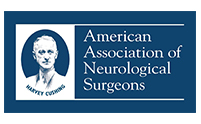What is Essential Tremor?
A tremor is an involuntary muscle movement characterized by the shaking of a body part. A slight tremor is normally present in all of us, especially the elderly. Tremors due to a neurological disease that do not resolve require medical intervention. Essential tremor is a neurological condition that causes rhythmic shaking of a part of the body, especially the hands when performing simple tasks such as writing or drinking from a glass. It is the most common type of tremor seen in those above age 40 and is not associated with any other disorder. Essential tremors may be an inherited condition due to genetic abnormalities. It may also occur due to changes in the part of your brain that controls muscle movement.
Symptoms of Essential Tremor
Essential tremors usually begin slowly, mostly involving a hand and occur when you try to engage in a task. It is worsened with movement, fatigue, stress, stimulants such as caffeine, and temperature changes. Your head may be involved making rhythmic up and down or side to side motions. It may also affect your voice.
Diagnosis of Essential Tremor
When you present with essential tremor, your doctor will review your family and medical history and perform a thorough physical examination. Neurological tests, performance tests (perform certain tasks) and certain blood and urine tests may be ordered to look for a possible cause and to rule out other conditions.
Treatment for Essential Tremor
You may not require treatment if your symptoms are mild, but if you cannot perform activities of daily living your doctor may prescribe blood pressure or anti-seizure medications, tranquilizers or Botox injections. Physical or occupational therapy may be recommended to improve muscle control and coordination. Surgical techniques such as deep brain stimulation, where a device is implanted in your brain to reduce tremors, may be suggested if your symptoms are severe and other treatment fails.








